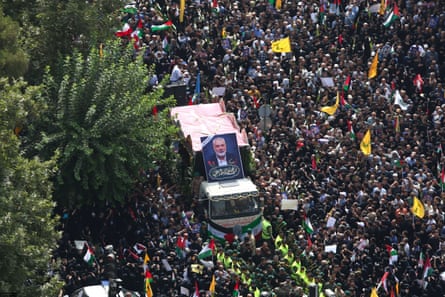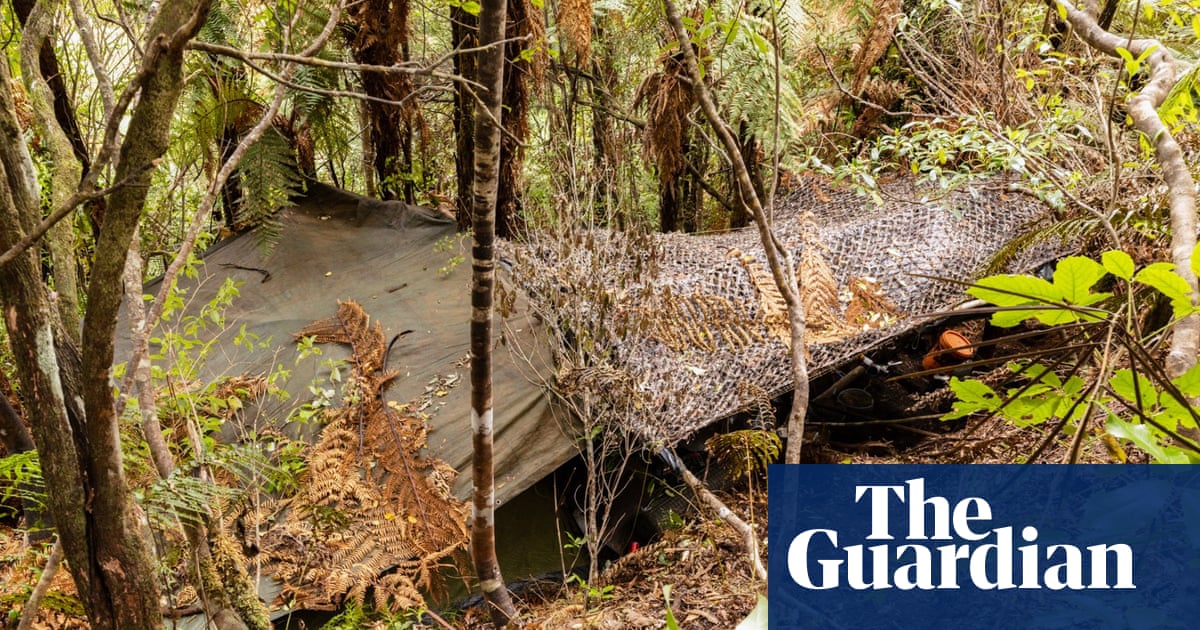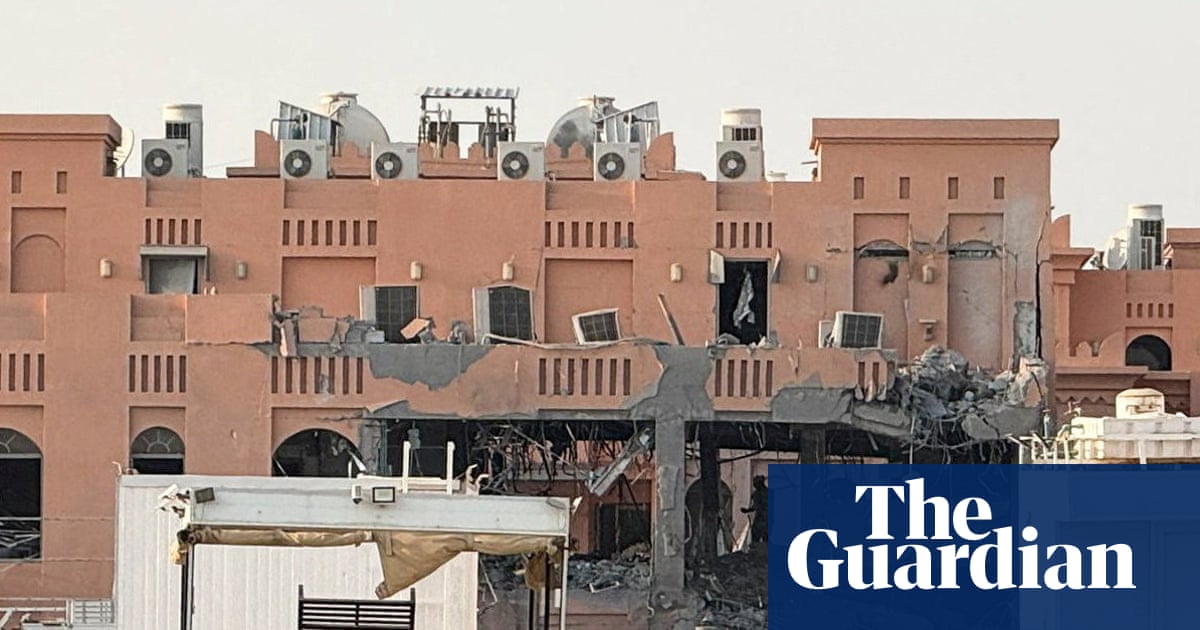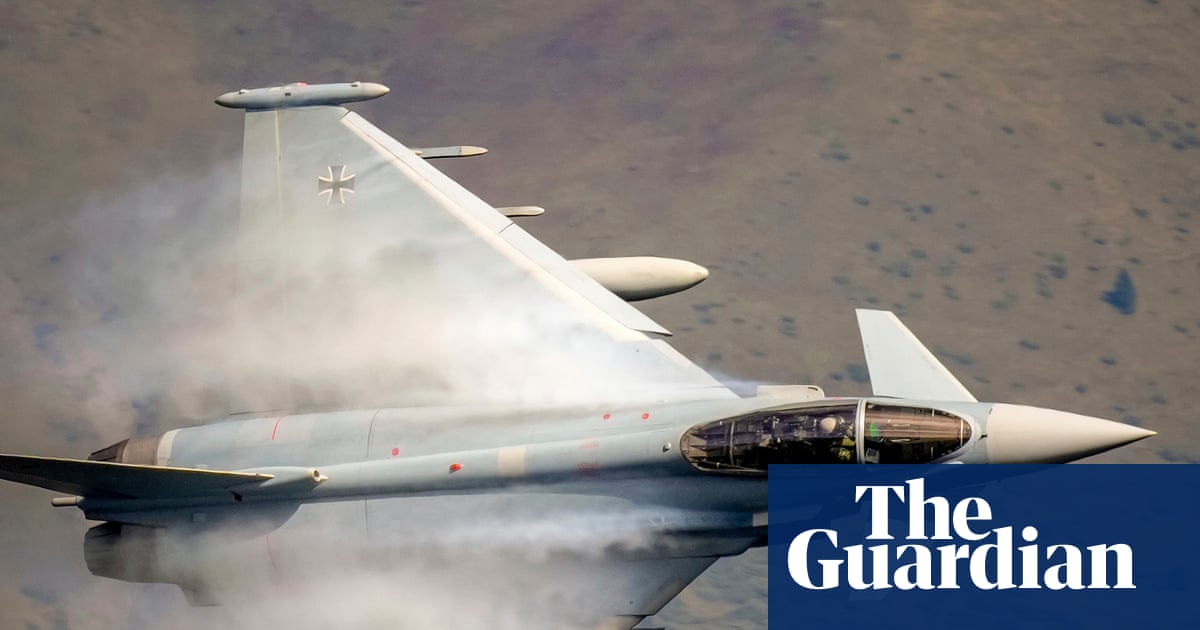Israelis were celebrating on Friday what many see as a stunning new success by their country’s foreign intelligence service, the Mossad.
Hours after launching 200 warplanes in a wave of strikes against Iran, Israeli officials released footage they said showed the Mossad agents deep inside Iran assembling missiles and explosive drones aimed at targets near Tehran.
According to unnamed security officials who briefed Israeli media, similar precision weapons were launched from trucks smuggled into the country and a “drone base” hidden somewhere near Tehran. This was established well in advance of Friday’s attack and used to destroy Iran’s air defences, the officials said.
The Mossad, an abbreviation of the Institute for Intelligence and Special Operations in Hebrew, has scored many such victories in almost 80 years of undercover operations, earning a unique reputation for audacious espionage, technological innovation and ruthless violence.
The new operation in Iran comes just 10 months after the service managed to sabotage thousands of pagers and walkie-talkies used by Hezbollah operatives in Lebanon, an attack that killed 37 people and injured about 3,000 others while crippling the militant Islamist organisation.
The service then contributed to the air offensive that wiped out Hezbollah’s leadership in a matter of days.
Over decades, the Mossad has built up deep networks of informants, agents and logistics in Iran. This has allowed a series of operations including the assassination with a remote-controlled automatic machine gun of a top Iranian nuclear scientist travelling at speed in a car on a remote road, the infection with malware of computers running key parts of Iran’s nuclear programme and the theft of an archive of nuclear documents. Last year, Ismail Haniyeh, the political leader of Hamas, was assassinated with a bomb placed in his favourite room in a government guesthouse in Tehran.

“This most recent operation is impressive, of course, but Iran has been an open book for Israeli intelligence for a decade or more,” said Yossi Melman, a veteran Israeli security reporter and author.
Melman said those pictured setting up missile launches in the grainy videos released by the Mossad were likely to be Iranians. “The boots on the ground inside Iran are not Israeli, so they have to be recruited, trained, equipped, and deployed. Then all the components of the weapons have to be smuggled in. It all needs a lot of professionalism and skill.”
Unusually, Israeli officials have highlighted the role of Aman, the military intelligence service, in building up targeting information for the Israeli offensive.
Though Aman and the Mossad often work closely, it is the foreign service, much smaller, that gets most of the attention. Even then, most of the Mossad’s work is never known outside tightly restricted circles.
For decades, few had even heard of the Mossad, which was formally established in 1949. Former agents were ordered not to tell even their family or their previous employment and the service never admitted its involvement in any operation.
Yossi Alpher, who took part in some of the service’s best-known operations in the 1970s, told the Guardian last year: “Everything the Mossad did was quiet, no one knew. It was a totally different era. The Mossad was just not mentioned. When I joined, you had to know someone to be brought in. Now, there is a website.”
The Mossad’s senior officials have long been more likely to spend their time on sensitive diplomatic missions, briefing senior Israeli decision-makers on regional political dynamics or building relationships abroad than recruiting spies or running operations such as that targeting Iran this week.
For decades, the Mossad oversaw years-long clandestine efforts to build up “enemies of Israel’s enemies”, such as Kurds in Iran, Iraq and Syria, and Christians in what is now South Sudan. As with many of its efforts, this had mixed success.
The Mossad is blamed by some for ignoring warnings about the reputation of Maronite Christian militia in Lebanon for brutality and ethnic hatred, and encouraging Israel’s disastrous invasion of that country in 1982, in which thousands of civilians were killed.
The Mossad also played a significant, though still little-known, role in the covert supply of arms to Ayatollah Khomeini’s Iran to help fight Saddam Hussein’s Iraq, as part of the Iran-Contra scandal during Ronald Reagan’s presidency.

The mythical reputation of the Mossad has been bolstered by films and TV series, with screenwriters attracted to some of the service’s best-known exploits.
One of the most famous is the 1960 capture in Argentina of Adolf Eichmann, a Nazi officer who was a key organiser of the Holocaust. Others include stealing warships from the French navy in 1969, warning of impending attack by Egypt and Syria in 1973 and providing key intelligence for the famous raid on Entebbe, Uganda, in 1976 that freed Jewish and Israeli passengers hijacked by Palestinian and German extremists.
In 1980, the service set up and ran a diving resort on Sudan’s Red Sea coast as a cover for the clandestine transport of thousands of members of Ethiopia’s Jewish community to Israel. The Mossad spies lived among tourists before being forced to close down the operation after five years.
After a deadly attack by Palestinian extremists on Israeli athletes at the Munich Olympics in 1972, the Mossad led a campaign to disrupt the networks and groups responsible. The effort ended when a Mossad team shot dead a Moroccan waiter in Norway in the mistaken belief he was a Palestinian Liberation Organization security official, and then made further errors leading to their arrest and trial by local authorities.
In 1997, an effort to kill Khaled Meshaal, a powerful Hamas leader, went badly wrong when the Mossad team was caught in Amman by local security forces. Israel was forced to hand over an antidote and relations with Jordan were badly damaged. In 2010, agents were caught on CCTV camera in Dubai during another assassination.
Then there is the failure to learn anything that might have warned of the Hamas raids into southern Israel on 7 October that killed 1,200 Israelis, mostly civilians, and led to the abduction of 251. The attack prompted the Israeli offensive in Gaza, the current war with Hezbollah and, indirectly, the new confrontation with Iran.
Former Mossad officials say the service only gets noticed when things go wrong. This is not quite true, though – as the release of the Iran videos shows.
Melman said one of the Mossad’s aims – particularly with the publicity – is to sow fear among Iranians. “The aim is psychological. The Mossad is telling the Iranian regime: we know everything about you, we can wander into your home when we like, we are an omnipotent force,” said Melman. “It’s also a very good way to boost the morale of the Israeli public.”

 2 months ago
41
2 months ago
41

















































